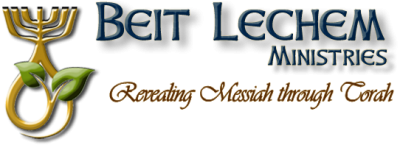Shemot - Exodus 30: 22-23
Exodus 30:23,a “And take for yourself choice spices, five hundred sheqels of liquid myrrh,…”
The word myrrh comes from the Hebrew word for Marar (maw-raw) meaning bitter.
Myrrh is a fragrant resin produced by bushes and trees covered with very long, very sharp thorns. To harvest myrrh one must fight through the thorns and pierce the bark and cause the precious liquid life source of the plant to ooze forth.
The resin that flows and hardens is referred to as "tears," because it forms into tear like shapes.
The myrrh that was of high quality was called the "Myrrh of Freedom" because it was that which flowed freely of itself, or when cut that which flowed from the wounds.
Myrrh has a fragrant aroma but is bitter to the taste.
Yeshua death was very bitter, but out of it comes the sweetest blessings. Mryyh speaks to “death to self.”
Matthew 10:38 “And he who does not take up his stake and follow after Me is not worthy of Me.”
Exodus 30:22-b …and half as much – two hundred and fifty – of sweet-smelling cinnamon,
Cinnamon comes from the word kinnamon (kin-ah-mon) H7076 which means to “stand upright or erect.”
This spice the Hebrews used was from India, the spice is gathered from small branches/shoots which have been pruned from the tree. The bark is cut away from the branch.
Eventually, the bark dries, as it dries, the edges curl up like a Torah scroll.
Cinnamon was considered to be as costly as gold in Biblical times.
This spice speaks of increased holiness.
Exodus 30:23,c and two hundred and fifty of sweet-smelling cane,
Also know as “Calamus.” The Hebrew word is qaneh (qaw-neh), H7070 cinnamon and calamus come from the same root word-qanah.
The calamus are canes-reeds-growing up out of the marshes with seed clusters growing on the canes.
They do have a sweet smell, these clusters will attached their sweet scent to the feet and clothing.
Yet, it is the root which has the greater fragrance. The root must be plucked up, split, dried, then ground into fine powder.
Practical lesson we can learn. What we practice in private will ultimately manifest itself in the public place. If you want to have a beautiful flowering plant, you have to nourish your roots. Roots of prayer, worship, and word. Calamus thus speaks to laying down our life in order to manifest Yeshua in greater measure.
Exodus 30:24-a and five hundred of cassia, according to the sheqel of the set-apart place,
The Hebrew word for “Cassia” is Qidah (qee-daw) H6916 it comes from the root word qadad (qaw-dahd) H6915 which means “to shrivel up, contract or bend the body, to bow (down) (the) head.”
Cassia is similar to cinnamon, it comes from trees which are related to cinnamon. The bark is darker, thicker and coarser.
The bark is stripped then boiled to obtain the spice. It is very aromatic,
Psalm 45:8 All Your garments smell of myrrh, and aloes and cassia, out of the ivory palaces, by which they have made You glad.
Cassia speaks of humility.
Philippians 2:6-8 who, being in the form of Elohim, did not regard equality with Elohim a matter to be grasped, but emptied Himself, taking the form of a servant, and came to be in the likeness of men. And having been found in fashion as a man, He humbled Himself and became obedient unto death, death even of a stake.
A practical lesson for us is that we are not only to be salty, (our set-apartness) but there should be a refreshing that our lives bring to those outside the kingdom. God wants to use our walk as a fragrant spice in the life of others.
Exodus 30:24-b and a hin of olive oil.
Zayit (zaw-yet) H2132 is the Hebrew word for olive. This word comes from an unused word meaning “to be prominent, bright, it also can mean to flow out slowly.”
Shemen (she-men) H8081, is the Hebrew word for oil.
Some of the meanings of this word are richness, fat, liquid, oil, nourish, healthy. Eight is a derivative of this word.
Olive trees are shaken so as to cause the ripen olives fall to the ground.
The olives are beaten, crushed, or pressed in order to get the oil.
Isaiah 53:5 But He was pierced because of our transgressions, crushed because of our iniquities. The chastisement for our shalom was upon Him, and by His stripes we are healed.
2 Corinthians 4:7-11 But we have this treasure in jars of clay, so that the surpassing greatness of the power may be from God and not from ourselves. We are hard pressed in every way, yet not crushed; perplexed, yet not in despair; persecuted, yet not forsaken; struck down, yet not destroyed; always carrying in the body the death of Yeshua, so that the life of Yeshua may also be revealed in our mortal body. For we who live are always being handed over to death for Yeshua’s sake, so that the life of Yeshua may be revealed in our mortal body.
This is a lifelong walk of faith, our hidden life (calamus) will reveal the anointing through the power of the Holy Spirit (oil), stripped of our flesh (cassia), die to self daily (myrrh), becoming set-apart vessels (cinnamon) displaying Messiah in us.


